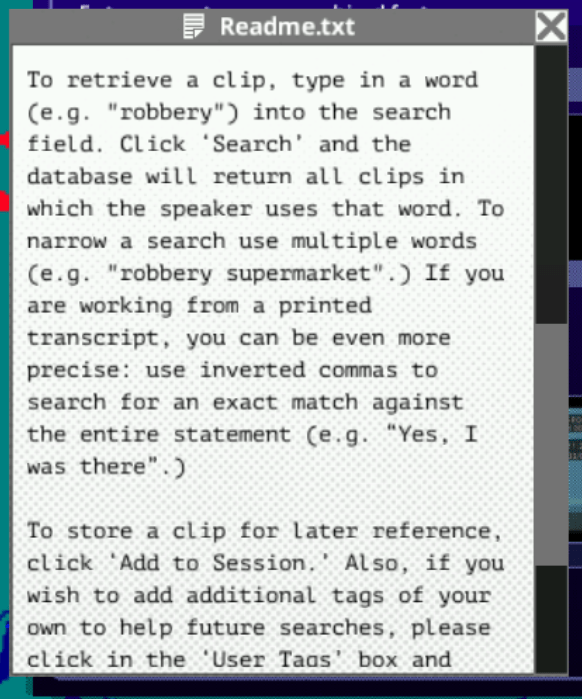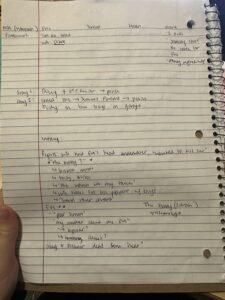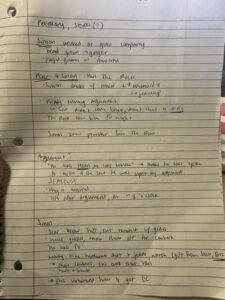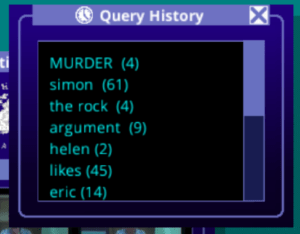For my critical play, I played “Her Story”, an interactive film video game written and directed by Sam Barlow. It was released in 2015 for iOS, OS X, and Windows, and the following year for Android. The game is intended for mature audiences, since it contains themes of sex acts, violence, and homicide. In the game, you search through a database of video clips from fictional police interviews, and use them to figure out what happened in the case of a missing man named Simon. The interviews focus on Simon’s wife, Hannah. By giving users the freedom to piece together the story through these short video clips, the game allows players to take control of the narrative and unravel the mystery themselves, while also providing narrative structure through the database mechanic.
“Her Story” places the responsibility on the player to figure out the mystery of what happened to Simon. Rather than point the player to the correct order the narrative, the player instead has to decide themselves how they want to use the database to piece the different parts of the mystery together. The only context given are some initial clips that imply that Hannah is a suspect in Simon’s disappearance, as well as instructions on how to use the database and a note that hints at the fact that we aren’t part of the police force, but instead requested these tapes. I felt like this made it more of an interactive experience, like I was really a detective figuring out what happened with the case.


However, although I was given a lot of freedom to explore the story myself, I liked how the game didn’t give too much freedom, so that I didn’t feel lost on how to progress in the story. Making the player use the database to uncover the mystery provides some narrative structure to an otherwise open-ended game. Since the main mechanic in the game is thinking of what key words to put in the database, I found myself paying attention to surprising or interesting words/phrases that Hannah was saying and trying to piece together the relationship between different words. I think that this provided more structure when it came to strategizing how I could progress in the narrative, which felt more engaging than if it was just completely open-ended. It also encouraged me to write things out in order to piece together different key points, which made me feel even more immersed in the mystery.



However, I do think that since users have so much control over the progression of the narrative, it was hard to have confirmation on whether I was on the right track. Maybe some players prefer it this way, but I personally would have liked for there to be more “checkpoints” or some signal to indicate that I was progressing in the right direction for the story. I think it would have felt more rewarding for me to unravel some part of the mystery and then receive confirmation that I was correct in my hypotheses. This could also contribute to more of a narrative shape to the story, since I think without these kinds of “signals” or “rewards” it’s hard to feel a sense of struggle or climax throughout the narrative.



